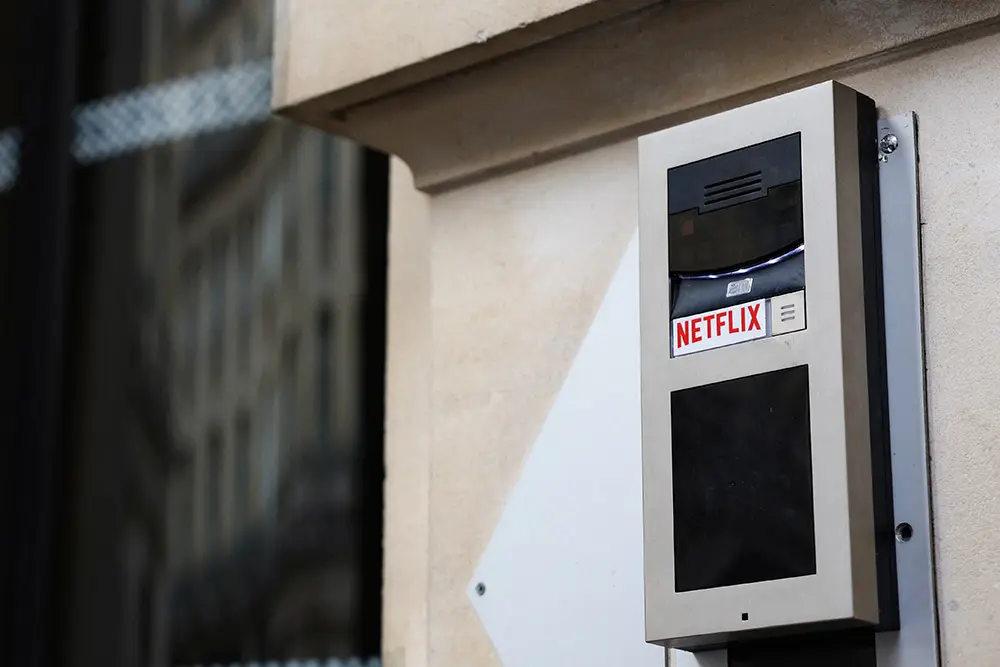Netflix tax investigation: Paris and Amsterdam offices raided
Uncovering the specifics
In a significant development in the world of streaming giants, Netflix found itself under scrutiny as tax fraud investigators raided its offices in Paris and Amsterdam. This series of searches, part of a broader probe into tax evasion, has put the popular streaming service in a challenging spotlight.
Investigators have been diligently working on a preliminary investigation into potential tax fraud laundering since November 2022. The National Financial Prosecutor’s Office is leading the charge, with suspicions mounting against Netflix for allegedly “covering up serious tax fraud and off-the-books work.” Such accusations, if proven true, could lead to substantial legal consequences for the company known for its popular original productions. This is not the first time that Netflix’s tax dealings have been questioned; similar concerns have popped up in other parts of Europe.
International cooperation
An interesting aspect of this ongoing investigation is the cooperative effort between French and Dutch authorities. The joint task force highlights the significance of multi-national collaboration in tackling complex financial fraud cases. For months, both nations have gathered evidence and pieced together the puzzle that potentially points to wide-scale fiscal misconduct.
This is reflective of a broader trend in how countries are beginning to handle tax evasion issues among tech giants. Companies like Netflix, which offer subscription services worldwide, often find themselves in murky waters due to the diverse and stringent tax regulations that vary from country to country.
Tech giants and tax troubles
Tech companies frequently face scrutiny due to their global presence and the complexities involved in complying with various national tax codes. With the rapid expansion of digital services, tax authorities worldwide are becoming more vigilant in investigating companies suspected of exploiting loopholes to minimize tax liabilities.
In 2022, Netflix settled a contentious tax dispute with the Italian government, making headlines by paying €55.8 million (approximately $59.1 million at that time). This settlement followed an investigation initiated three years earlier, which alleged that Netflix should have paid taxes in Italy due to its extensive user base and infrastructure within the country. Such cases underscore the challenges multinational companies face in navigating international tax laws.
What’s next for Netflix?
Representation from Netflix’s Paris and EMEA (Europe, Middle-East, and Africa) headquarters have remained tight-lipped about the current situation. While the ongoing investigation doesn’t necessarily imply that criminal charges are imminent, it raises questions about the company’s tax strategies and fiscal governance.
The streaming giant has experienced exponential growth in recent years, driven by a surge in demand for online entertainment. Netflix’s expansive content library, which includes fan favorites and exclusive originals, has cemented its place in households worldwide. However, this growing footprint also means an increased responsibility to adhere to international tax regulations.
As Netflix continues to navigate these waters, other tech companies are closely watching, understanding that any precedents set could affect their operations. The industry is at a pivotal juncture where adherence to tax laws and transparency are becoming as crucial as content and user engagement.
Reflection on the industry’s future
The investigations into giants like Netflix remind us of the delicate balance between global expansion and regulatory compliance. As governments become more adept at identifying and addressing tax discrepancies, companies must evolve their practices to ensure they stay within the bounds of the law.
The tech industry’s landscape is rapidly evolving, with regulatory bodies worldwide closing in on tax practices that were once overlooked. For industry leaders, this means strategizing not just for growth and innovation but also for stringent compliance with international fiscal standards.
It’s essential for companies to adopt more transparent tax strategies and invest in robust compliance frameworks. This not only helps in mitigating legal risks but also in maintaining a positive public image. Trust and integrity in business operations are paramount, especially in an era where information (and thus misinformation) can spread like wildfire.
Stay informed
As we delve deeper into this case and similar ones involving major corporations, you can stay abreast of all developments by following our updates. Share your thoughts on this issue and how you think it might influence future business practices. Our platform encourages informed discussions on critical topics affecting the industry.
Feel free to share this article on your social media channels and engage with us as we continue to explore the intersection of global business, technology, and regulatory frameworks.

 Italian
Italian







